Report: Critique and Comparison of Two Tourism Discussion Papers
VerifiedAdded on 2020/02/19
|6
|1249
|273
Report
AI Summary
This report offers a critical analysis and comparison of two discussion papers related to tourism planning environments. The first paper, "Investigating the influence of tourism on economic growth and carbon emissions: Evidence from panel analysis of the European Union," examines the negative environmental consequences of increased carbon emissions due to tourism-related activities, particularly within the European Union. It highlights the link between economic growth and CO2 emissions, exploring the impact of transportation, infrastructure development, and resort construction. The paper also proposes solutions such as low-carbon technologies and environmental taxes. The second paper, "The Need for Business Environmental and Social Responsibility in the Tourism Industry," focuses on the negative implications of tourism on host countries, emphasizing the importance of Corporate Social Responsibility (CSR) and Business Social Responsibility (BSR). It discusses the detrimental effects on the environment, economy, and socio-cultural factors, including economic leakage and the erosion of traditional values. The report compares the effectiveness, quality, and structure of both papers, concluding that the first paper provides more in-depth and constructive information. The analysis highlights key learnings, such as the importance of offering specific solutions, practicing sustainable tourism, and utilizing established frameworks in research papers. The report concludes with a reference list of the source materials.
1 out of 6
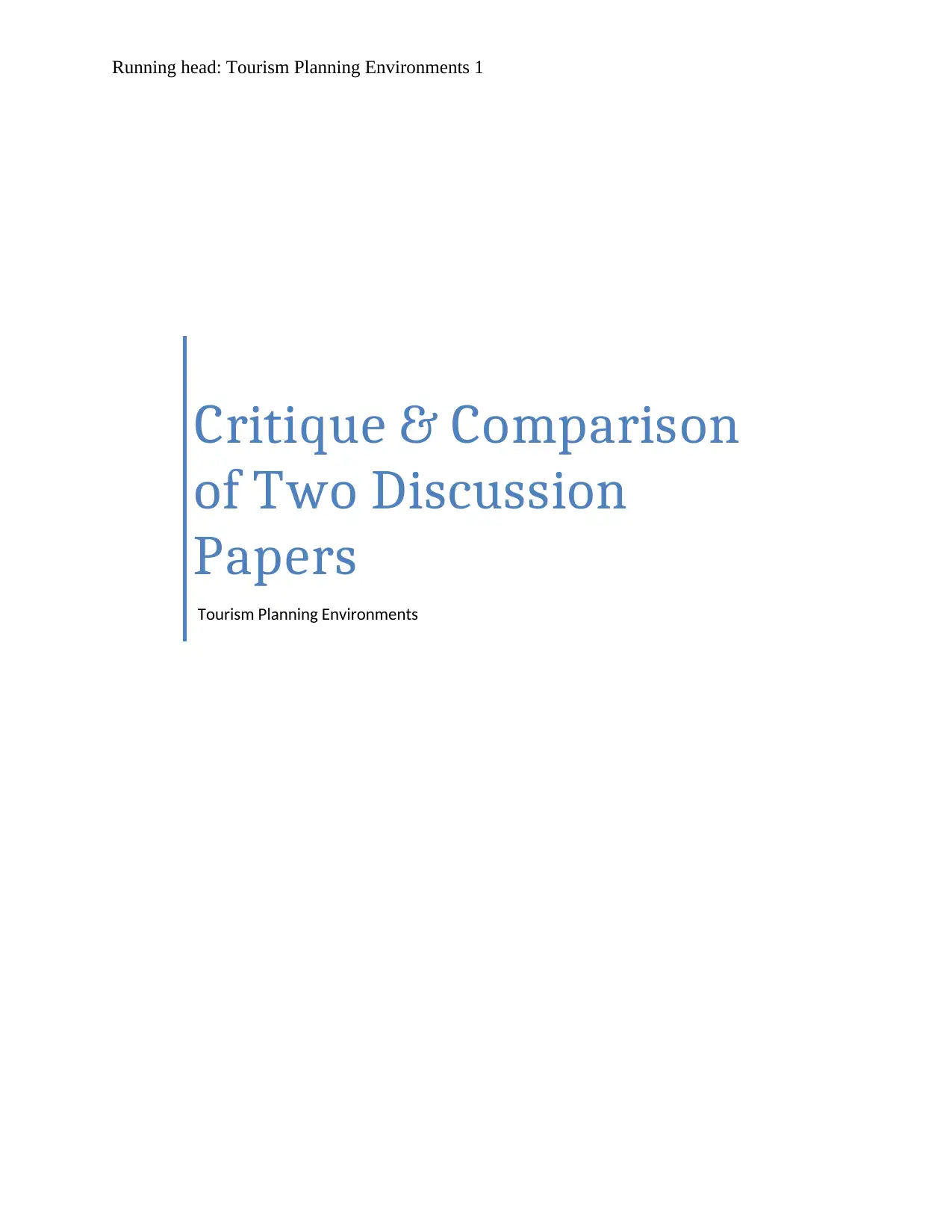
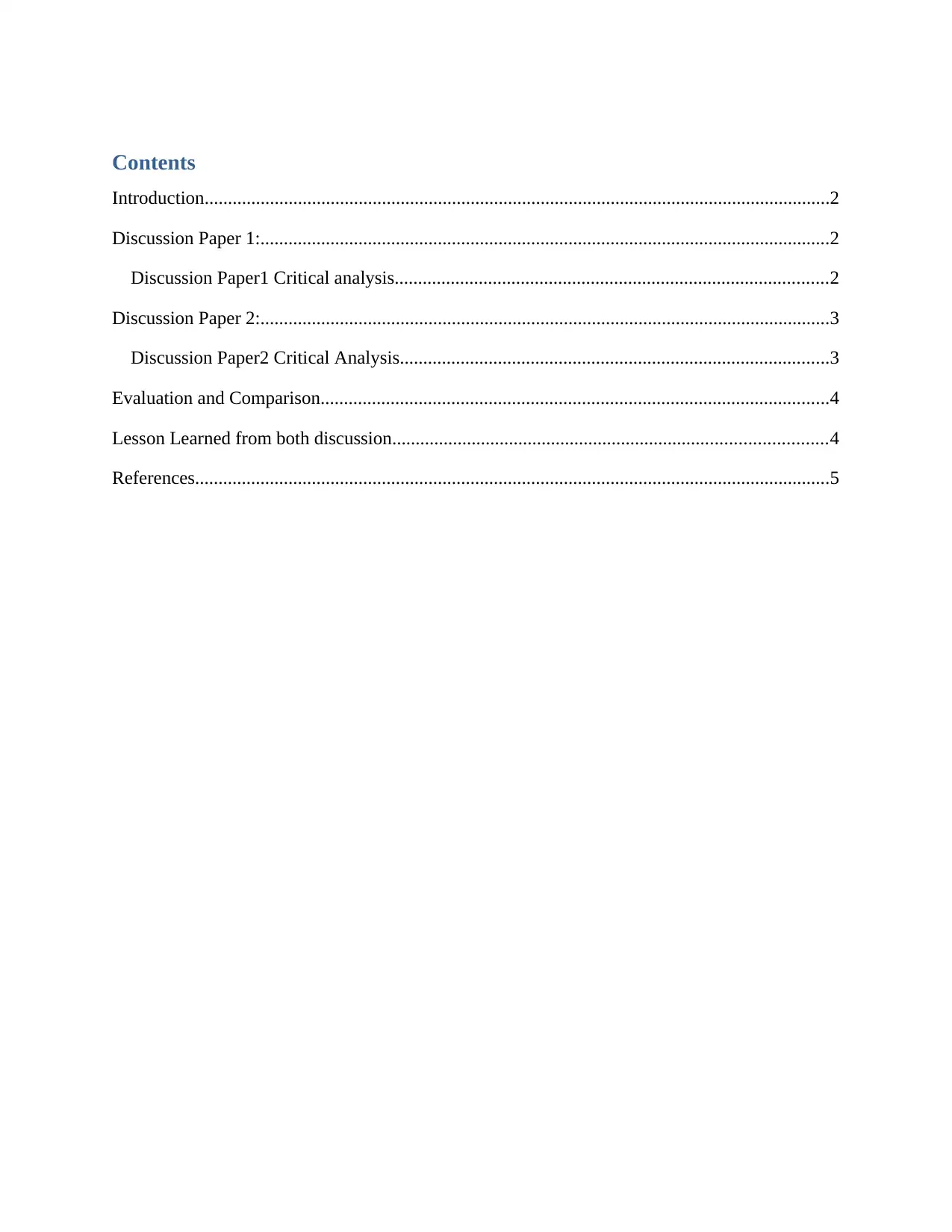
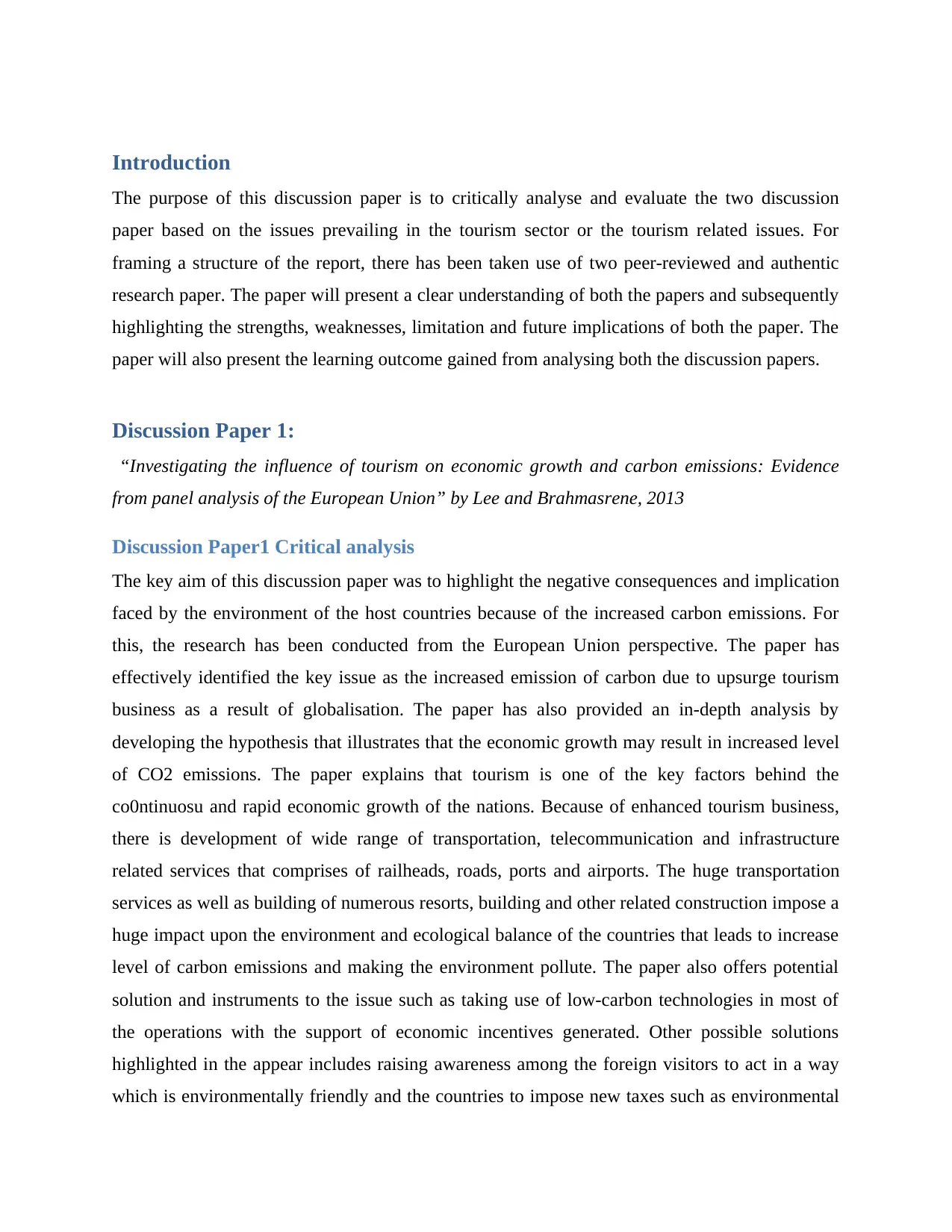

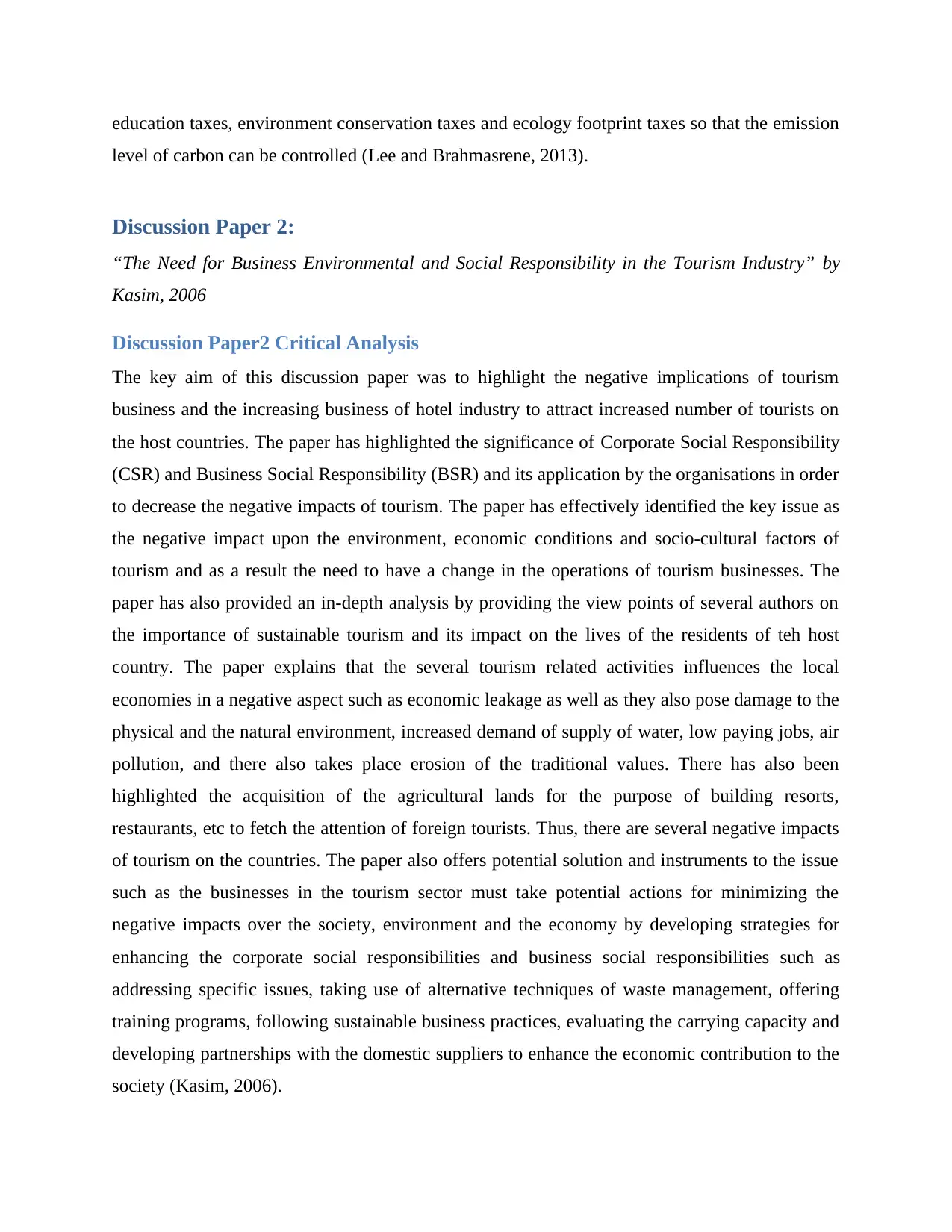
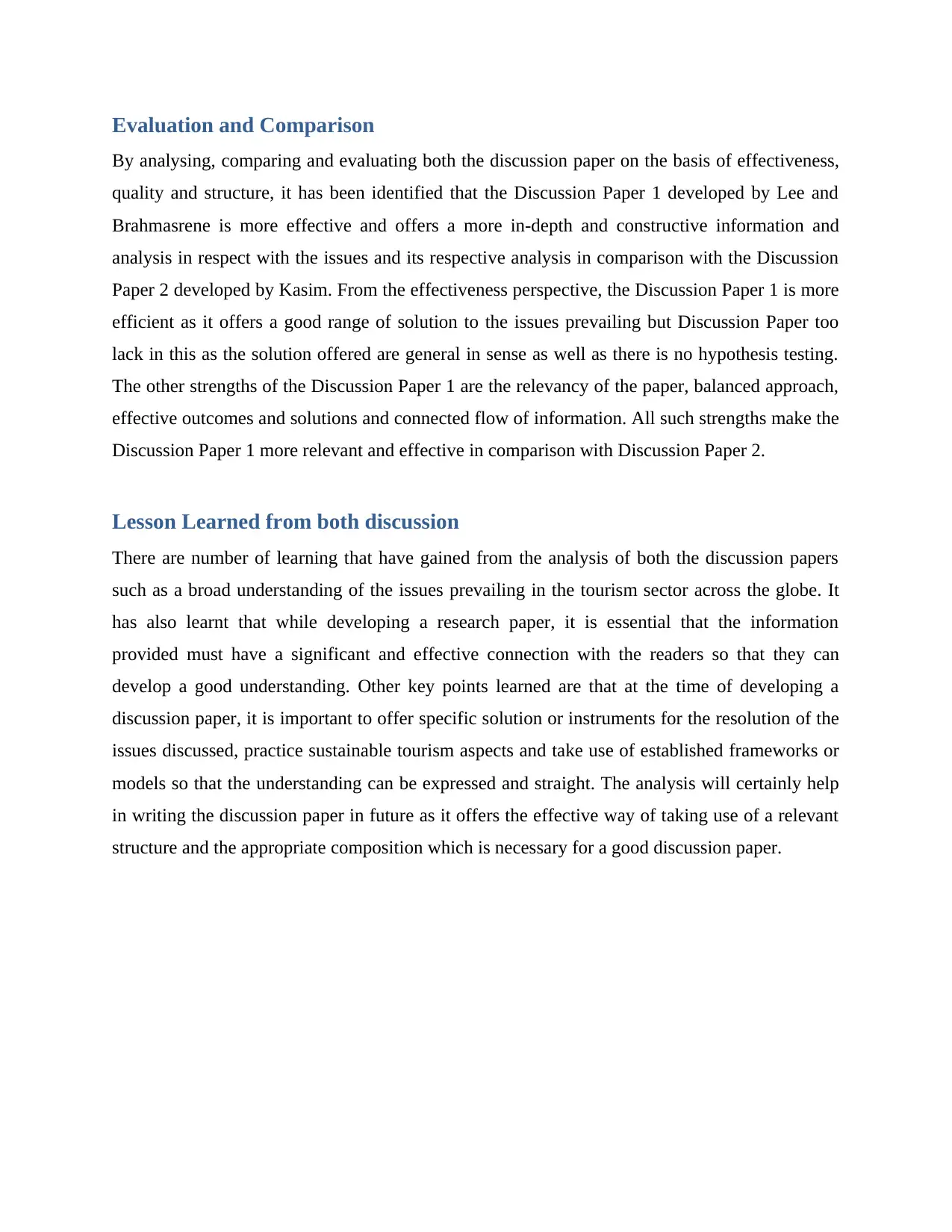
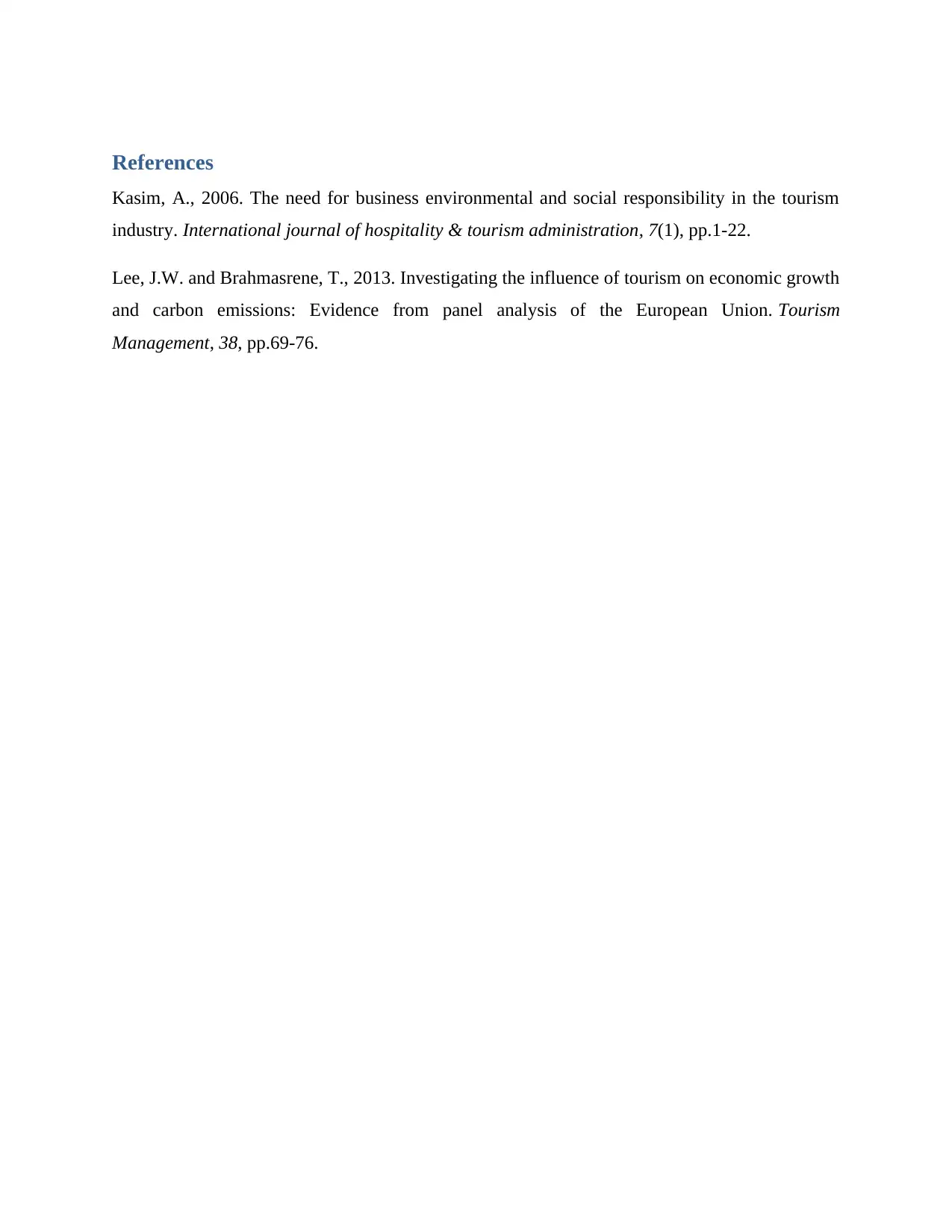






![[object Object]](/_next/static/media/star-bottom.7253800d.svg)